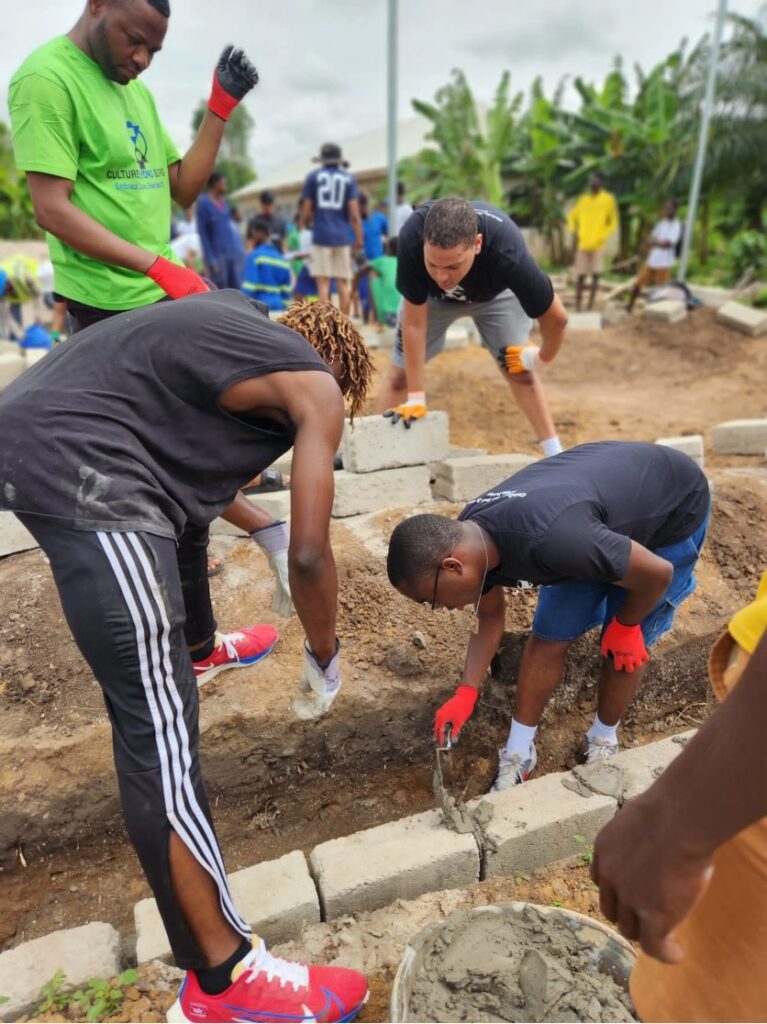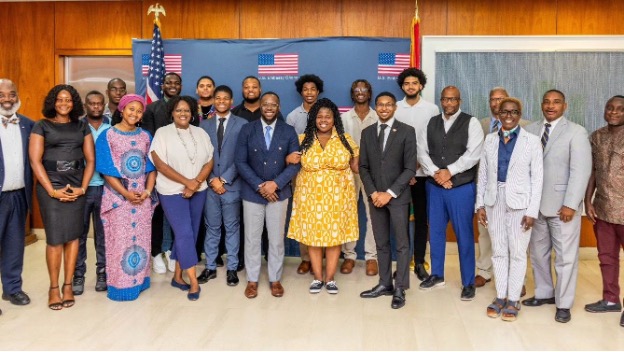In the United States, Black students comprise approximately 36% of all college students, yet their participation in study abroad hovers in the single digits; according to the Open Doors® Report, only 5% of American students who studied abroad in 2021/22 identified as Black. As part of our partnership with grassroots nonprofit Leaders of the Free World (LFW) to help bring study abroad participation to equitable levels, the IIE Center for Access and Equity is proud to have served as a sponsor of the 2024 LFW Fellowship for student leaders.
Designed to cultivate leadership skills and increase students’ awareness of international education and career opportunities, the LFW Fellowship features a two-week international experiential learning trip to Ghana, June 2-15. The students are selected by LFW for their demonstrated leadership and commitment to contributing to international education and affairs; they are paired with an accountability partner and mentor, engage in networking and leadership development assignments, and receive research-backed coaching.
In recognition of the Juneteenth holiday in the U.S., we are featuring a guest blog by Leaders of the Free World co-founder Ruby Maddox, who has been leading the organization since 2016. We asked about the inspiration behind their work, the importance of culturally responsive educational frameworks, and the unique significance of visiting Ghana for Black American students
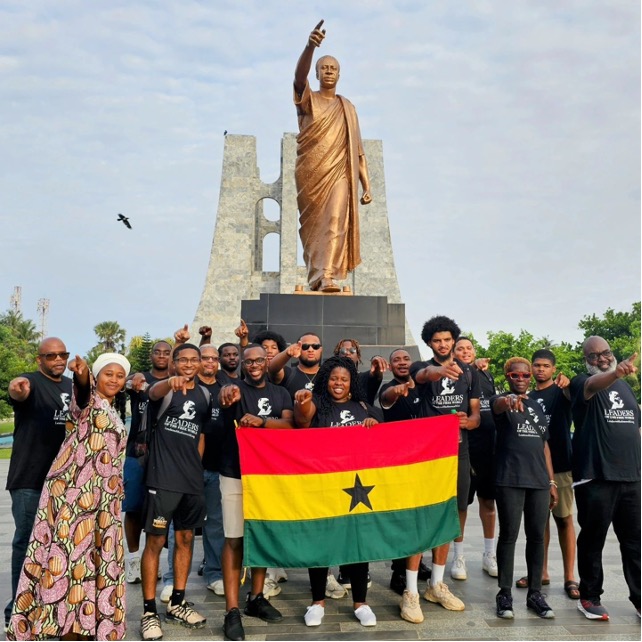
What inspired you to create the Leaders of the Free World Fellowship?
Leaders of the Free World was created to address the disparities and systemic challenges faced by Black male college students in the U.S. After my first trip to Ghana and the difficulties I encountered in making that experience happen, I realized I wanted to create opportunities for more students of color to travel. I discovered that while many programs focused on women and girls, there were virtually no programs supporting young Black men in international experiences.
For my co-founder Lavar Thomas, the lack of representation he felt as a Peace Corps volunteer in Rwanda was a significant motivator. We have long observed the lack of representation and opportunities for Black men in leadership roles. This underrepresentation reflects broader societal inequities that affect educational, professional, and personal growth.
The inception of LFW was inspired by a commitment to change this narrative. We envisioned a program that would not only provide leadership training but also foster a sense of global citizenship and cultural awareness. The goal was to create an immersive experience that would empower these young men to see themselves as leaders on a global scale, capable of making impactful contributions to their communities and beyond.
Why focus on leadership development for black male college students?
The focus on Black male college students is both intentional and necessary. Statistically, Black men face unique challenges in higher education, from lower graduation rates to limited access to mentorship and professional networks. These challenges are often compounded by societal stereotypes and implicit biases that hinder their progress.
Leadership development is crucial for this demographic because it equips them with the skills, confidence, and networks needed to overcome these barriers. By focusing on Black male college students, we aim to provide them with the tools to navigate and excel in environments that have historically marginalized them. Our program emphasizes not just academic and professional success but also personal growth and self-mastery.
Why visit Ghana?
Ghana holds a special place in the history and culture of the African diaspora. As one of the first African countries to gain independence from colonial rule, Ghana symbolizes resilience, freedom, and a rich cultural heritage. For Black Americans, Ghana offers a profound connection to ancestral roots and a chance to engage with African history and culture in a meaningful way.
Choosing Ghana as the destination for our fellowship program is about more than just travel; it is about creating a transformative experience that bridges the gap between African American identity and African heritage. This journey allows our fellows to explore their roots, understand the historical context of their identities, and gain a broader perspective on global leadership.
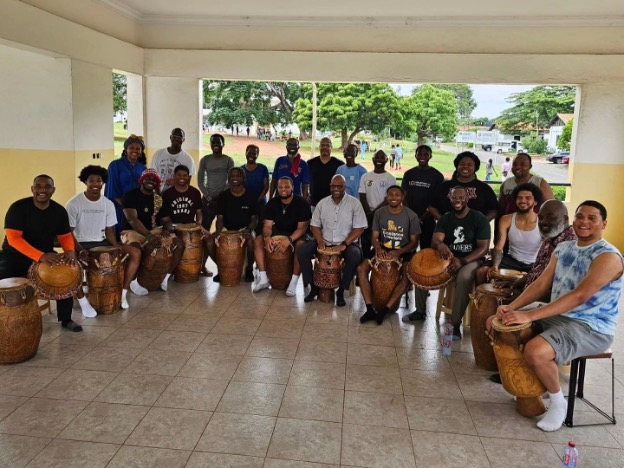
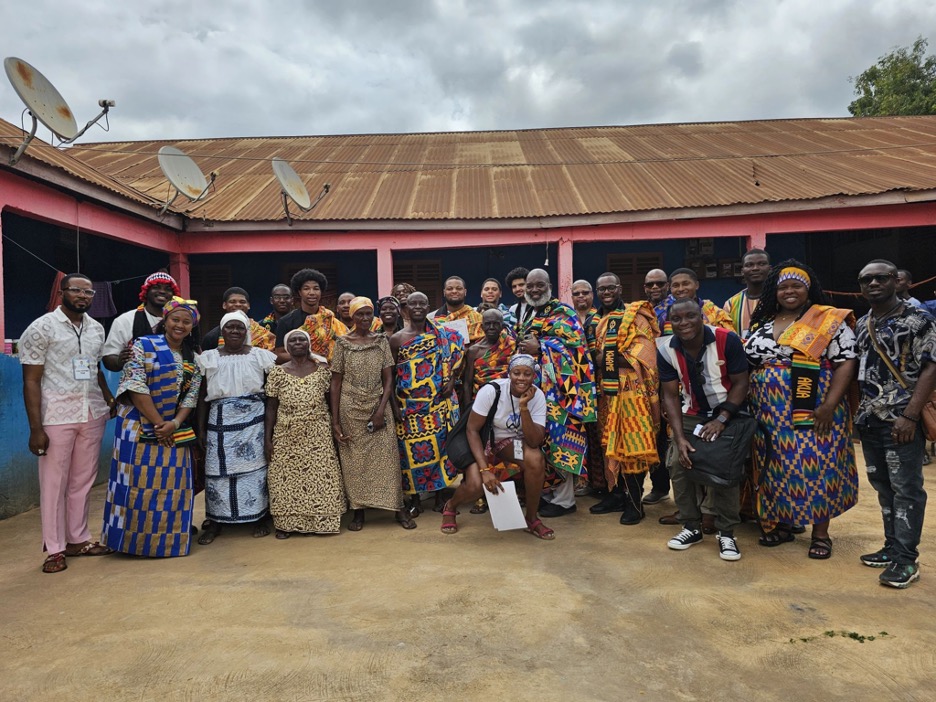
What is the significance of culturally responsive education?
Identity plays a pivotal role in the development of young leaders, particularly for those from underrepresented groups. Understanding and embracing one’s identity is essential for building self-confidence and a sense of purpose. For Black male students, this process is often fraught with challenges due to societal perceptions and internalized biases.
Culturally responsive education is key to effectively reaching and empowering this group. It involves creating educational experiences that recognize and celebrate cultural diversity, validate the students’ experiences, and connect learning to their cultural contexts. In the case of LFW, this means designing a program that not only teaches leadership skills but also integrates African and African American history, culture, and perspectives.
By focusing on culturally responsive education, we ensure that our fellows see themselves reflected in the curriculum and the leadership models we present. This approach helps to dismantle the negative stereotypes that often surround Black masculinity and replaces them with positive, empowering narratives.
As we continue to grow and expand our program, we remain dedicated to empowering the next generation of Black male leaders and helping them navigate their paths with confidence, resilience, and a strong sense of identity.
